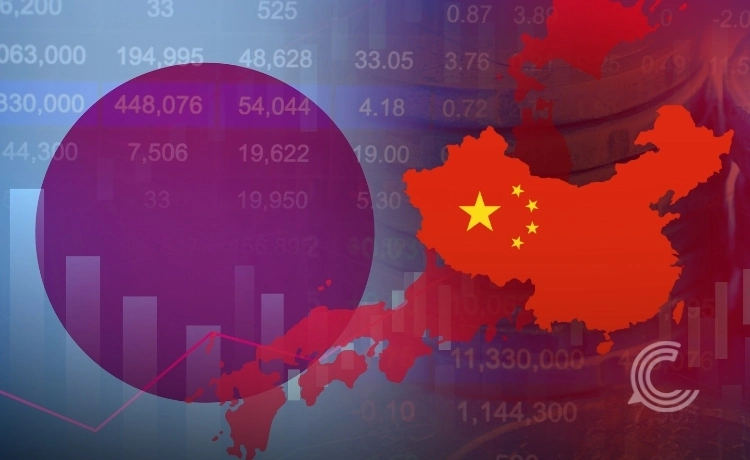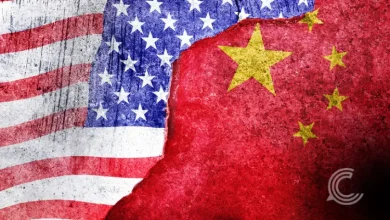How One Remark Triggered an Economic Crisis in Sino-Japanese Relations

Key Points:
- A recent remark by Japanese Prime Minister Sanae Takaichi, suggesting military intervention if a Chinese attack on Taiwan threatens Japan’s survival, has triggered the latest crisis in Sino-Japanese relations
- In response, China demanded a retraction and escalated with significant economic measures, including a travel warning for its citizens and a swift ban on all Japanese seafood imports
- The underlying conflict is rooted in competing claims over the Senkaku/Diaoyu Islands, historical grievances, and the stabilizing role of the U.S.-Japan Security Treaty in the region
The delicate balance of power in East Asia has been sharply destabilized by a diplomatic crisis between the world’s second- and fourth-largest economies. Tensions between Japan and China have ignited into outright confrontation following a powerful policy statement from Tokyo that has fundamentally challenged Beijing’s position on Taiwan.
The Trigger: Taiwan and the Right to Self-Defense
The flashpoint occurred this month after new Japanese Prime Minister Sanae Takaichi told the Diet that a Chinese attack on Taiwan that threatens Japan’s survival could trigger a military response from Tokyo. This statement, delivered in parliament on November 7, invoked Japan’s 2015 security legislation, which allows the use of force under the concept of collective self-defense if an attack on a close partner directly endangers Japan.
The remarks were immediately met with a furious reaction from Beijing. China, which regards Taiwan as a breakaway province to be reunified by force if necessary, considers the issue a purely internal affair. China’s Foreign Ministry spokesperson, Lin Jian, reportedly described Takaichi’s comments as a “crude interference” in its internal affairs, resulting in a “heavy blow” to bilateral relations, reported by Channel News Asia. Beijing formally demanded that she retract the remarks.
Japan has, however, refused to back down. Tokyo maintains that Takaichi’s interpretation of the law remains the Japanese government’s standing position, suggesting no imminent diplomatic breakthrough is possible.
Escalation: Economic Coercion and Travel Warnings
The economic repercussions for Japan were immediate and substantial. China, in a move of clear economic coercion, urged its citizens not to travel to Japan. This travel warning has already resulted in mass flight cancellations from China to Japan, dealing a sizable blow to the world’s fourth-largest economy, which relies heavily on Chinese tourist spending for vital consumption momentum.
Further escalating the dispute, China informed Japan on Wednesday that it will ban all imports of Japanese seafood, media outlets reported. This decision, as reported by Reuters, follows a partial lifting of previous restrictions imposed after Japan began releasing treated wastewater from the Fukushima nuclear power plant in 2023.
This reimposition of the blanket ban on seafood imports strikes at Japan’s primary export sector to the mainland, a market that previously accounted for over a fifth of all Japanese seafood exports. While China attributed the ban to a need for continued monitoring of the Fukushima water release, the timing clearly links the measure to the deepening diplomatic row over Taiwan.
The Roots of the Conflict
While Taiwan is the current focus, the underlying conflict in Sino-Japanese relations runs deeper, including unresolved historical grievances and a critical territorial dispute.
The most persistent source of friction is the competing sovereignty claims over a group of uninhabited islets in the East China Sea. Japan controls the islands, calling them the Senkaku Islands. China claims them as the Diaoyu Islands. Both sides frequently deploy vessels into the contested waters, raising the risk of unintended military escalation.
Moreover, the trauma of Japan’s militarist past, including wartime atrocities like the Nanjing Massacre, continues to fuel animosity. Beijing regularly invokes these unresolved historical wounds, viewing certain Japanese political gestures, such as visits to the Yasukuni Shrine, as evidence that Tokyo has failed to fully atone for its actions.
The Critical Role of the United States
The U.S. plays a critical and defining role in the dispute. The Treaty of Mutual Cooperation and Security between the United States and Japan is the pillar of Japan’s defense posture. Article 5 of the treaty obligates the U.S. to defend Japan in the event of an armed attack against territories under Japanese administration. This includes the Senkaku/Diaoyu Islands, a position the U.S. has repeatedly affirmed.
More broadly, Japan’s increasingly vocal stance on Taiwan, particularly Takaichi’s willingness to invoke collective self-defense, aligns with the U.S. strategy of countering China’s military assertiveness in the Indo-Pacific. As noted by the Observer Research Foundation, Japan’s strategic posture toward a Taiwan contingency is grounded in the hard geography of its southwestern islands, which place its national security on the front line of any cross-strait disruption. Tokyo’s hardening position strengthens the regional alliance structure designed to deter Beijing.



